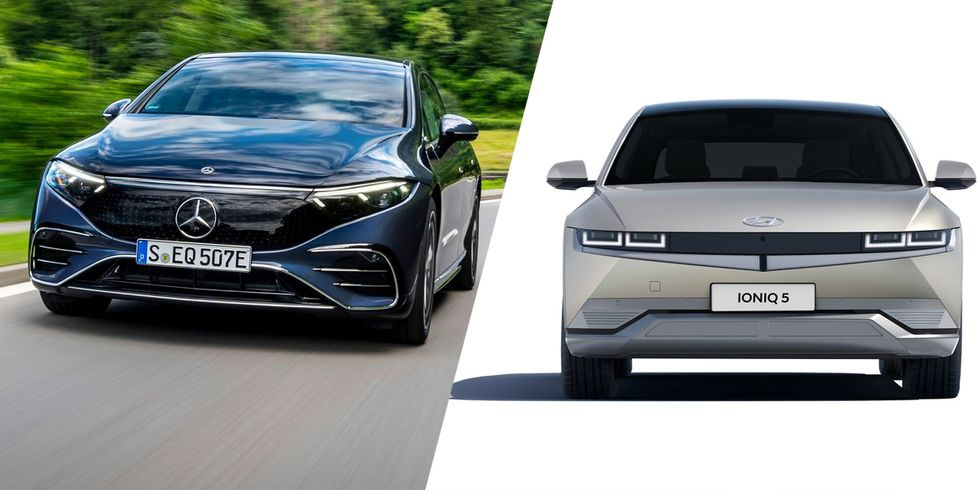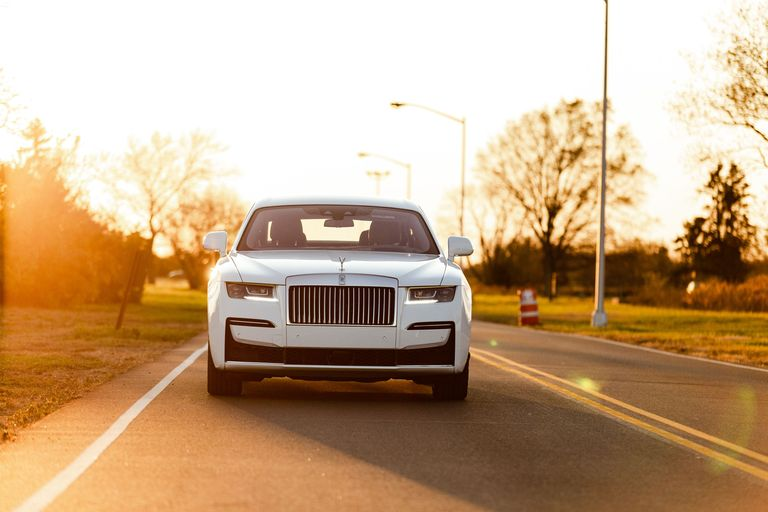Search the Community
Showing results for tags 'big tech'.
-
https://www.roadandtrack.com/car-culture/a38090275/biggest-threat-from-electric-cars/ "Electric Cars Could Represent an Existential Threat for Luxury and Performance Brands Every company seems jazzed about the electric future. Think hard about market forces, though, and it’s obvious that someone is going to lose. How do you justify this many high-end car brands when every electric powertrain feels fundamentally the same? A question like that could kill a brand. Yet wandering the halls of the electric-oriented Munich auto show, you won’t find answers. You won’t even find anyone acknowledging the question. Here, the future is brilliant, boundless, and secure. Every brand is uniquely capable of winning. Every car is uniquely suited to its electric mission. And every executive can recite from memory the story of what will surely happen over the next decade. Getting out of one electric car demonstration drive and into another, though, I was unconvinced. Everyone cannot win. And the nature of electric cars likely means there can be fewer winners in the future. Evidence in favor surfaced in the Hyundai Ioniq 5. The electric crossover looks like an upsized Eighties hot hatch adapted for Cyberpunk, with an interior that could shame many concept cars. On the country lanes circling metro Munich, the Ioniq was brilliant. Its cabin was Cadillac quiet, its powertrain Rolls-Royce refined. Even in a lineup filled with all-stars, the Ioniq 5 is special. To deem the Hyundai as good as Mercedes’s flagship EQS electric mega-sedan would be an overstatement, of course. Going from the Hyundai to the Benz, there’s a palpable step-up, not just inside, but in the overall experience of the car. But it’s a gap that’s not quite big enough to keep sweat off the suits in Stuttgart. The Ioniq 5 might not be the match of the EQS, but it’s a hell of a lot closer than any middling Hyundai has ever been to the luxury stalwart, the Mercedes S-class. One core competency that unites the most conventionally successful premium brands is their mastery of the internal-combustion engine. McLaren and Porsche offer not just power but power that’s immediate and unending. Power with thunderous V-8 or wailing flat-six acoustic accompaniment. Rolls-Royce and Bentley, meanwhile, trade not only in suede and solidity, but smoothness and silence. As the industry shifts toward electric propulsion, these companies will inevitably continue to offer plenty of power, effortless acceleration, and total tranquility. Trouble is, so will Hyundai. So when whatever’s on the lot for $299 a month can get off the line without hesitation in its powertrain or vibrations through its seat rails, it’s hard to imagine how much more will the market bear for the driving experience of a Rolls-Royce. Surely names like Rolls-Royce and Mercedes stand for more than just engine refinement. Luxury brands have long differentiated themselves with stunning interiors, next-gen technology, seamless sales and service procedures, and exclusivity. But anyone with a cursory understanding of economics knows that the fewer differentiating factors there are to compete on, the tighter the margins will be in any market. This is why the endless variations of apples drive strong profits (have you seen what Honeycrisps go for?), while the genetic clone that is the common banana can be picked up for pennies. Electric motors are closer to the latter than the former. Every electric motor good enough to land in a current production car is torquey and linear. Some are permanent magnet, some are synchronous, but you’d never feel the difference if you weren’t told. EV powertrains can compete on how long they can draw from their batteries before they die, how efficient they are, or how well they’re tuned. Yet the fundamental experience is the same. Asked about how they’ll address this, different premium brands offer different not entirely satisfying answers. AMG says it’ll differentiate itself on tuning. BMW points to its in-house motors as a source of pride. Rolls-Royce ignores the email. Others have more to say in informal chats, but every major OEM stops short of admitting that someone’s going to get hurt. Because if you, as an automaker, acknowledge the obvious conclusion to the question, you may be expected to come up with a solution. No one seems close. It doesn’t take a trip to Munich to see it. Wander around any urban center and you won’t find it swarmed with I-Paces or e-trons. All you’ll see are gas cars and Teslas. It took an upstart to recognize that you didn’t need intricate interiors and unquestionable quality to stake a claim in the premium space. The EV experience was luxurious enough; all it took was that and a big touchscreen to convince the world that the brand selling the world’s simplest interiors was worthy of the luxury moniker. Less than a decade later, Tesla is the only EV that matters. For now, at least. It is all but impossible to build a successful business these days on sedans, unless of course the sedans have “Tesla” on the steering apparatus. The brand is so profoundly captivating that market trends seemingly do not apply. As the electric offerings from competitors improve, the homogeneity of the EV experience will threaten Tesla too. But its status as the default EV brand gives it some time to settle the matter. Those are the spoils of being the first company to understand the immense opportunity afforded by the switch to electric cars. Tesla hasn’t had to face the fundamental question here because it owns the space. In their rush to catch up, though, traditional automakers have become blind to the brewing threat of that very same transition. If they want to endure, they’ll have to find more unique, enduring visions beyond making their current cars electric. Otherwise, I’m not sure that the utopian vision from the auto show stands a chance at coming true."
- 36 replies
-
- 3
-

-
- electric cars
- tesla
- (and 6 more)





